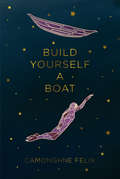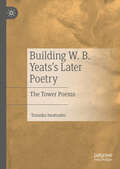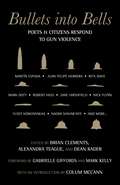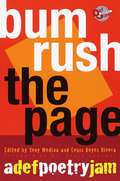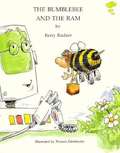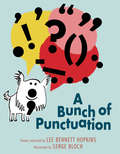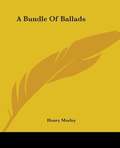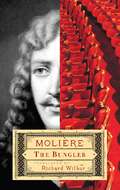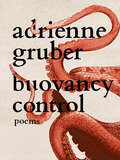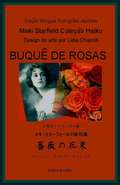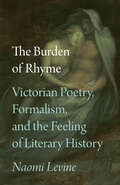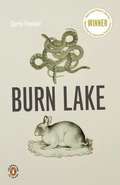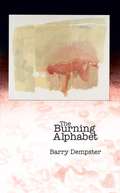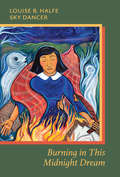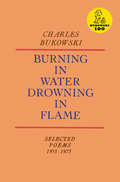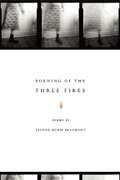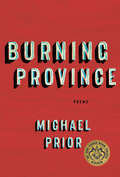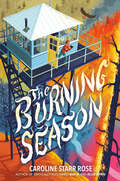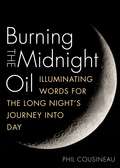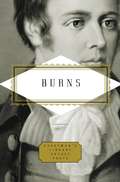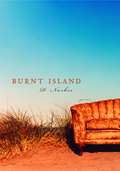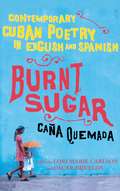- Table View
- List View
Build Yourself a Boat
by Camonghne Felix2019 National Book Award Longlist: &“Centering on black, female identity, [this is] an exquisite and thoughtful collection.&” —Bustle This is about what grows through the wreckage. This is an anthem of survival and a look at what might come after. A view of what floats and what, ultimately, sustains. A finalist for the PEN Open Book Award, Build Yourself a Boat redefines the language of collective and individual trauma through lyric and memory.&“With Build Yourself a Boat, Camonghne Felix heralds a thrillingly new form of storytelling.&” —Morgan Parker, author of Magical Negro
Building a New Nation
by Elizabeth KearneyThis exciting collection of short stories, American folk tales, and poetry will take readers through many important historical events of America, from the westward expansion through the mid-20th century. Students will not only learn about Davy Crockett, Clara Barton, Abraham Lincoln, Booker T. Washington, and others; they will increase their reading comprehension and vocabulary through questions, activities, and word lists located at the end of most selections.
Building Poems
by Michael Clay ThompsonUses architecture as an extended metaphor, showing that poems are constructed like buildings and with careful attention to every detail
Building W. B. Yeats's Later Poetry: The Tower Poems
by Tomoko IwatsuboThis book explores Yeats’s later poetry through the metaphor of the poetic tower, where different kinds of ‘building’ – architectural, textual, political and symbolic – were closely interrelated. It chronologically examines Yeats’s tower poems, composed during a period of dramatic personal and national transformation, from 1915 to 1932. Within a year after the Easter Rising in Dublin, Yeats acquired a half-ruined Norman tower in County Galway, Ireland, which had enthralled him for the past two decades, and textually and architecturally constructed it into a focus of his life and work. Interweaving the account of the renovation of the actual building and the textual construction in the socio-historical contexts, the book reveals the evolution of Yeats’s multiplex tower as an organizing principle of his later poetry. Using the archive of correspondence and manuscript materials of relevant poems, including those which have thus far escaped close attention, the book offers close textual-genetic analyses and a diachronic view of Yeats’s tower poetry, which, with its foundations laid decades earlier, he built in the collections from The Wild Swans at Coole (1919) to The Winding Stair and Other Poems (1933). Highlighting the delicate exchange between poetry and biography as well as between the textual architecture and the actual one, identifying a turning point in the making of each tower-oriented poem and proposing some draft-dating revisions, this first book-length systematic study on the process of Yeats’s creation of the tower casts an unfamiliar light on a familiar yet underexplored landmark in modern poetry and makes his step-by-step construction work come alive.
Bullets into Bells: Poets & Citizens Respond to Gun Violence
by Colum McCann Brian Clements Alexandra Teague Dean RaderA powerful call to end American gun violence from celebrated poets and those most impactedFocused intensively on the crisis of gun violence in America, this volume brings together poems by dozens of our best-known poets, including Billy Collins, Patricia Smith, Natalie Diaz, Ocean Vuong, Danez Smith, Brenda Hillman, Natasha Threthewey, Robert Hass, Naomi Shihab Nye, Juan Felipe Herrera, Mark Doty, Rita Dove, and Yusef Komunyakaa.Each poem is followed by a response from a gun violence prevention activist, political figure, survivor, or concerned individual, including Nobel Peace Prize laureate Jody Williams; Senator Christopher Murphy; Moms Demand Action founder Shannon Watts; survivors of the Columbine, Sandy Hook, Charleston Emmanuel AME, and Virginia Tech shootings; and Samaria Rice, mother of Tamir, and Lucy McBath, mother of Jordan Davis.The result is a stunning collection of poems and prose that speaks directly to the heart and a persuasive and moving testament to the urgent need for gun control.
Bum Rush the Page: A Def Poetry Jam
by Tony Medina Louis Reyes RiveraBum Rush the Page is a groundbreaking collection, capturing the best new work from the poets who have brought fresh energy, life, and relevance to American poetry. "Here is a democratic orchestration of voices and visions, poets of all ages, ethnicities, and geographic locations coming together to create a dialogue and to jam--not slam. This is our mouth on paper, our hearts on our sleeves, our refusal to shut up and swallow our silence. These poems are tough, honest, astute, perceptive, lyrical, blunt, sad, funny, heartbreaking, and true. They shout, they curse, they whisper, and sing. But most of all, they tell it like it is." -Tony Medina, from the Introduction
The Bumblebee and the Ram
by Barry RudnerA character-building story humorously presented. A bumblebee who--by laws of physics--should not be able to fly is fixed for flight by Ram, the computer, only to find that he never had to change at all in order to fly.
A Bunch of Punctuation
by Lee Bennett HopkinsSelected by noted anthologist Lee Bennett Hopkins, this collection of all-new poems is written from the points of view of personality-filled punctuation marks, and is a memorable introduction to grammar for kids (adults, too!)In this land of punctuation, the exclamation mark is a superhero who tells a story chock-full of bops and bams, the comma lets you pause to enjoy the weather, and the period is where you must come to a full stop--or else the Grammar Police will get you. With humor and imagination, A Bunch of Punctuation makes it easy to remember the jobs of the various punctuation marks. Award-winning poet and anthologist Lee Bennett Hopkins has compiled a unique collection of poems featuring brand-new works by well-known poets, accompanied by inventive artwork by illustrator Serge Bloch.
A Bundle of Ballads
by Henry MorleyHenry Morley (15 September 1822 – 1894) was a writer on English literature and one of the earliest Professors of English Literature. The son of an apothecary, he was born in Hatton Garden, London, educated at a Moravian school in Germany, and at King's College London, and after practicing medicine and keeping schools at various places, went in 1850 to London, and adopted literature as his profession. This book is a collection of his ballads.
The Bungler
by Richard Wilbur Molière"A mischievous new translation by the poet Richard Wilbur, [The Bungler] is great good fun and should open the gate for the play to be presented with the regularity it deserves."--Bruce Weber, The New York Times"My notion of translation is that you try to bring it back alive. Speak-ability is so important. . . . I came to see that a line that simply says 'I love you,' at the right point in the show, is entirely adequate, that a great deal of verbal sophistication is not necessarily called for."--Richard WilburPoet Richard Wilbur's translations of Molière's plays are loved, renowned, and performed throughout the world. This volume is part of Theater Communications Group's new series (with cover designs by Chip Kidd) to complete trade publication of these vital works of French neoclassical comedy. The Bungler is Molière's first recognizably great play, and the first to be written in verse. The charming farce is set in Sicily and born of the great Italian tradition of the commedia dell'arte: Loyal valet Mascarille schemes to win the lovely Celie away from rival Leadre, and into the arms of his master Leslie. Molière himself originated the role Mascarille, self-described as "the rashest fool on earth," who naturally bungles the job along the way.Richard Wilbur is a two-time Pulitzer Prize winner and a former Poet Laureate of the United States. His publications include six volumes of poetry and two collections of selected verses, a collection of prose, and two books for children.
Buoyancy Control
by Adrienne GruberBuoyancy Control, the latest collection of poems from Vancouverite Adrienne Gruber, explores themes of sexuality, sexual identity, and queerness, while confronting the feelings of loss and longing found in relationships, and the chance glimpse into a new life, while still recovering from a painfully failed connection.Metaphors of oceans, lakes, and other bodies of water, as well as the creatures that inhabit those spaces, swim and swirl their way through Gruber's languid poems, which are divided into two evocative sections. Though distinguished by their own prologue poems, both sections reveal details of the narrator's examination of life, but from two different perspectives: Section 1, Terra Firma, is an exploration of place, of what we consider solid and secure, and how solidity can betray us. In contrast, Section 2, A mari usque ad maria, brings the reader into themes of water and the fluidity of identity, particularly sexual identity and queerness.This is an honest, at times humorous, and revealing look inside the mind and body of a woman manoeuvring through experiences of longing, loss, and the fluidity of sexual identity, only to come out on the other side a more forgiving being from the journey. Fans of Karen Solie's powerfully feminist and unapologetic poetic voice, as well as the playful sarcasm and grit of Alison Calder's Wolf Tree, will glory in Gruber's fascinating culmination of land and sea, mind and body, in Buoyancy Control.
Buquê de Rosas
by Maki Starfield"Maki Starfield é uma poeta que escreve em muitos estilos, entre os quais está o haiku. Ela estudou haiku japonês tradicional sob Keishu Ogawa e Minoru Ozawa, e trabalhou com Banya Natsuishi para promover o haiku de vanguarda em escala mundial. O haiku de Maki tende a pender para o lado tradicional ao escrever em japonês, ou seja, em forma fixa, usando palavras das estações (“kigo”) e a métrica de 5-7-5 sílabas, mas ao escrever em inglês ou traduzir para o inglês, ela escreve em forma livre. A forma livre não exige palavras das estações nem métrica 5-7-5, e, em vez disso, exige a falta de um ritmo apropriado, e que seja curto o suficiente para maximizar os efeitos “kire” tradicionais do haiku (“kire” é frequentemente traduzido como “corte”, mas na conotação japonesa original, é mais conhecido como "excitação da imagem") com seu uso de palavras-chave (as palavras das quatro estações são tipos de palavras-chave)." - Kika Hotta, no Prefácio.
The Burden of Rhyme: Victorian Poetry, Formalism, and the Feeling of Literary History
by Naomi LevineA major new account of Victorian poetry and its place in the field of literary studies. The Burden of Rhyme shows how the nineteenth-century search for the origin of rhyme shaped the theory and practice of poetry. For Victorians, rhyme was not (as it was for the New Critics, and as it still is for us) a mere technique or ahistorical form. Instead, it carried vivid historical fantasies derived from early studies of world literature. Naomi Levine argues that rhyme’s association with the advent of literary modernity and with a repertoire of medievalist, Italophilic, and orientalist myths about love, loss, and poetic longing made it a sensitive historiographic instrument. Victorian poets used rhyme to theorize both literary history and the most elusive effects of aesthetic form. This Victorian formalism, which insisted on the significance of origins, was a precursor to and a challenge for twentieth-century methods. In uncovering the rich relationship between Victorian poetic forms and a forgotten style of literary-historical thought, The Burden of Rhyme reveals the unacknowledged influence of Victorian poetics—and its repudiation—on the development of modern literary criticism.
Burn Lake
by Carrie FountainSelected for the 2009 National Poetry Series by Natasha Trethewey Set in southern New Mexico, where her family's multicultural history is deeply rooted, the poems in Carrie Fountain's first collection explore issues of progress, history, violence, sexuality, and the self. Burn Lake weaves together the experience of life in the rapidly changing American Southwest with the peculiar journey of Don Juan de Oñate, who was dispatched from Mexico City in the late sixteenth- century by Spanish royalty to settle the so-called New Mexico Province, of which little was known. A letter that was sent to Oñate by the Viceroy of New Spain, asking that should he come upon the North Sea in New Mexico, he should give a detailed report of "the configuration of the coast and the capacity of each harbor" becomes the inspiration for many of the poems in this artfully composed debut.
The Burning Alphabet
by Barry DempsterThe Burning Alphabet confirms and extends Barry Dempster’s reputation as one of Canada’s most respected poets. Underpinning these poems, as in his previous work, there lies an unswerving dedication to emotional and spiritual honesty, clear-eyed recognitions rendered without pomp. In one section, "Sick Days", he focuses on that "other place" of chronic illness. Other poems present arguments against suicide, and explore the tropical wonders of a woman’s closet. The closing section renders, with great candour and poignancy, the powerful love-hate relationship with an aging father. Dempster writes as though it were simply natural to have speech and song cohabit with such grace. In the thick of night, when we're dreaming of corridors and Dali clocks, the soft brown bodies of bucks and does are basking in our moonlight, nibbling on the last of our lettuce leaves, scratching impressions in our sand. They are the children we wish we'd had, fleeting images of ourselves before inner lives grew blotchy, eyes heavy with 10 p.m. cop shows and those blessedly nonsensical dreams. …From "Deer""In The Burning Alphabet, mood, with all its elaborate subtleties and manifestations, both in sickness and in health, constitutes a metaphysics. I feel as though I've lived an entire inner life in these pages, wrenching, dark, and amazingly sweet." – Roo Borson. Shortlisted for the Governor General’s Award for Poetry 2005; Winner of the CAA Jack Chalmers Poetry Award.
Burning in This Midnight Dream
by Louise B. HalfeA deeply scouring poetic account of the residential school experience, and a deeply important indictment of colonialism in Canada. Many of the poems in Louise Halfe's Burning in This Midnight Dream were written in response to the grim tide of emotions, memories, dreams and nightmares that arose in her as the Truth and Reconciliation process unfolded. In heart-wrenching detail, Halfe recalls the damage done to her parents, her family, herself. With fearlessly wrought verse, Halfe describes how the experience of the residential schools continues to haunt those who survive, and how the effects pass like a virus from one generation to the next. She asks us to consider the damage done to children taken from their families, to families mourning their children; damage done to entire communities and to ancient cultures. Halfe's poetic voice soars in this incredibly moving collection as she digs deep to discover the root of her pain. Her images, created from the natural world, reveal the spiritual strength of her culture. Originally published in 2016 by Coteau Books, Burning in This Midnight Dream won the Indigenous Peoples' Publishing Award, the Rasmussen, Ramussen & Charowsky Indigenous Peoples' Writing Award, the Saskatchewan Arts Board Poetry Award, the League of Canadian Poets' Raymond Souster Award, and the High Plains Book Award for Indigenous Writers. It was also the 2017 WILLA Literacy Award Finalist in Poetry. This new edition includes a new Afterword by Halfe. “Burning in this Midnight Dream honours the witness of a singular experience, Halfe’s experience, that many others of kin and clan experienced. Halfe descends into personal and cultural darkness with the care of a master story-teller and gives story voice to mourning. By giving voice to shame, confusion, injustice Halfe begins to reclaim a history. It is the start of a larger dialogue than what is contained in the pages.” —Raymond Souster Award jury citation
Burning in Water, Drowning in Flame: Poems
by Charles BukowskiBurning in Water, Drowning in Flame is poetry full of gambling, drinking and women. Charles Bukowski writes realistically about the seedy underbelly of life.
Burning of the Three Fires (American Poets Continuum #124)
by Jeanne Marie BeaumontBurning of the Three Fires shows Jeanne Marie Beaumont using her characteristic variety of techniques: dramatic monologues, lists, prose poems, object poems, and ekphrasis, to which she adds biography, elegy, and rites. This book takes a multifaceted look at womanhood: there are dolls, historic and modern girlhoods, mythic retellings of characters from Goldilocks to the Bride of Frankenstein, emotionally charged domestic trinkets, and even a conversation with Sylvia Plath conducted via a Magic 8- Ball.Jeanne Marie Beaumont is the author of Curious Conduct (BOA Editions, Ltd., 2004) and the National Poetry Series-winning book Placebo Effects. She lives in New York City.
Burning Province
by Michael PriorAcerbic, moving, and formally astonishing, Michael Prior's second collection explores the enduring impact of the Japanese internment upon his family legacy and his mixed-race identity.Amid the record-breaking wildfires that scorched British Columbia in 2015 and 2017, the poems in this collection move seamlessly between geographical and psychological landscapes, grappling with cultural trauma and mapping out complex topographies of grief, love, and inheritance: those places in time marked by generational memory "when echo crosses echo." Burning Province is an elegy for a home aflame and for grandparents who had a complex relationship to it--but it is also a vivid appreciation of mono no aware: the beauty and impermanence of all living things. "The fireflies stutter like an apology," Prior writes; "I would be lying to you / if I didn't admit I love them."
The Burning Season
by Caroline Starr RoseIn this riveting coming-of-age survival story in verse perfect for fans of Alan Gratz, a fire lookout-in-training must find her courage when a wildfire breaks out on her watch.Twelve-year-old Opal has a secret: she&’s deathly afraid of fire. Still Opal is preparing to become a fourth-generation lookout on Wolf Mountain, deep in the New Mexico wilderness. She, Mom, and Gran live at ten thousand feet in a single room at the top of a fire tower. They are responsible for spotting any hint of smoke before it becomes an uncontrollable blaze. Instead of training for the lonely life of a lookout, Opal wishes she could be starting seventh grade in Silver City, attending real classes with kids her own age and even going to afterschool clubs like FFA. But Wolf Mountain has other ideas. When Mom makes the long trek to town for supplies and Gran goes missing, Opal is the only one to spot a tell-tale spiral of smoke moving up the mountainside. She&’ll have to be braver than she&’s ever been as she heads into the woods, beyond Wolf Ridge&’s old blackened burn scar, to face down a fire on her own. But when a fire is what took her father away, and Opal herself knows the sting of smoke and lick of flames, how can she be brave enough when it really counts?
Burning the Midnight Oil: Illuminating Words for the Long Night's Journey Into Day
by Phil CousineauIn Burning the Midnight Oil, word-wrangler extraordinaire Phil Cousineau has gathered an eclectic and electric collection of soulful poems and prose from great thinkers throughout the ages. Whether beguiling readers with glorious poetry or consoling them with prayers from fellow restless souls, Cousineau can relieve any insomniac's unease. From St. John of the Cross to Annie Dillard, Beethoven to The Song of Songs, this refreshingly insightful anthology soothes and inspires all who struggle through the dark of the night. These "night thoughts" vividly illustrate Alfred North Whitehead's liberating description of "what we do without solitude" and also evoke Henry David Thoreau's reverie, "Our truest life is when we are in dreams awake." The night writers in Cousineau's vesperal collection range from saints, poets, and shamans to astronomers and naturalists, and tells of ancient tales and shining passages from the most brilliant (albeit insomniac) writers of today. These poetic ponderances sing of the falling darkness, revel in dream-time, convey the ache of melancholy, conspire against sleeplessness, vanquish loneliness, contemplate the night sky, rhapsodize on love, and languorously greet the first rays of dawn. Notable night owls include Rabandranath Tagore, Mary Oliver, Manley Hopkins, Jorge Borges and William Blake.
Burning the Midnight Oil
by Phil Cousineau Jeff The DowdIn Burning the Midnight Oil, word-wrangler extraordinaire Phil Cousineau has gathered an eclectic and electric collection of soulful poems and prose from great thinkers throughout the ages. Whether beguiling readers with glorious poetry or consoling them with prayers from fellow restless souls, Cousineau can relieve any insomniac's unease. From St. John of the Cross to Annie Dillard, Beethoven to The Song of Songs, this refreshingly insightful anthology soothes and inspires all who struggle through the dark of the night. These "night thoughts" vividly illustrate Alfred North Whitehead's liberating description of "what we do without solitude" and also evoke Henry David Thoreau's reverie, "Our truest life is when we are in dreams awake." The night writers in Cousineau's vesperal collection range from saints, poets, and shamans to astronomers and naturalists, and tells of ancient tales and shining passages from the most brilliant (albeit insomniac) writers of today. These poetic ponderances sing of the falling darkness, revel in dream-time, convey the ache of melancholy, conspire against sleeplessness, vanquish loneliness, contemplate the night sky, rhapsodize on love, and languorously greet the first rays of dawn. Notable night owls include Rabandranath Tagore, Mary Oliver, Manley Hopkins, Jorge Borges and William Blake.
Burns: Poems (Everyman's Library Pocket Poets Series)
by Robert Burns Gerard CarruthersThe most essential of the immortal poems and songs of Scotland's beloved national bard are collected in this volume. With the publication of his first book of poems in 1786, Robert Burns--the twenty-seven-year-old son of a farmer--became a national celebrity, hailed as the "Ploughman Poet." When he died ten years later, ten thousand people came to pay their respects at his funeral, and in the two centuries since then he has inspired a cultlike following among Scots and poetry lovers around the world.A pioneer of the Romantic movement, Burns wrote in a light Scots dialect with brio, emotional directness, and wit, drawing on classical and English literary traditions as well as Scottish folklore--and leaving a timeless legacy. All of his most famous lyrics and poems are here, from "A Red, Red Rose," "To a Mouse," and "To a Louse" to Tam o'Shanter, "Holy Willie's Prayer," and "Auld Lang Syne."
Burnt Island: Poems
by D. NurkseD. Nurkse’sBurnt Islandexplores tragedy both grand and intimate, in city and country, in our own troubled moment and across the greater scope of geological time. Arranged in three “suites” of lucid, often heart-wrenching verse, the book begins with a city under siege, in a group of poems that becomes a subtle homage to New York after 9/11–a metaphorical “burnt island,” where diggers doze on their shovels, citizens contribute bottles of water, M&M’s, and casseroles to recovery efforts, and survivors, mesmerized by the photos of the missing, compare them “scar by scar with the faces of the living. ” Nurkse then takes up the journey of a couple starting again in nature at a specific place called Burnt Island, where the elements instruct them, seeming to mirror their conflicts and strife. Finally, in a charming and profound series of poems centered on marine ecology, he finds the infinite in the infinitesimally small, and offers us, in sparkling, mysterious verses, the strange comfort that comes with observing the life of the ocean. we are like you because we are born by the billions and float into the open ocean– . . . . . . . . . . . . . . . . . . we live another second or much less, less than a blink, until the code comes to know itself and the mind dreams another mind that will survive it there, in the bright curtain of spray. (from “The Granite Coast”) From the Hardcover edition.
Burnt Sugar Cana Quemada
by Oscar Hijuelos Lori Marie CarlsonHere are the sights, sounds, and rhythms of Cuba, revealed in the evocative works of some of the finest Cuban and Cuban American poets of the twentieth century. InBurnt Sugar,bestselling translator Lori Marie Carlson and Pulitzer Prize-winning author Oscar Hijuelos have created an intimate collection of some of their favorite modern poems, all of which are informed bycubanía-- the essence of what it means to be Cuban. "Cuban" in this sense refers neither to ideology nor to geography but rather to the distinguishing characteristics of Cuban poetry as it has developed over time: clever verbal play, overt rhythmic notes, and an intensity of longing, whether religious, political, or amorous. Many of these poems have never been translated into English before, and taken together they, as the editors say, "produce a vibrant, satisfying sound and vivid imagery. They allow for some understanding of modern-day preoccupations, contradictions, feelings, and attitudes considered to be Cuban. " Stirring, immediate, and universal in its sensibility,Burnt Sugaris a luminous collection lovingly compiled by two of the world's foremost authorities on the subject.
